- Home
- D. H. Lawrence
Lady Chatterley's Lover Page 4
Lady Chatterley's Lover Read online
Page 4
Class is an anachronism. It finished in 1914. Nothing remains but a vast proletariat, including kings, aristocrats, squires, millionaires and working-people, men and women alike. And then a few individuals who have not yet been proletarianised.…
It was a great relief to her that that vague, yet very profound class-mistrust which had lain like a negating serpent at the bottom of her soul, was now gone. Vitally, organically, in the old organic sense of society, there were no more classes. That organic system had collapsed. So she need not have any class-mistrust of Parkin, and he need have none of her.
This discovery presumably frees them to live in the world as it is, on their terms. The end of the second version is very explicitly uninterested in any retreat to the colonies. It is the world or nothing, this time. “To Connie, the wood where she had known Parkin in the spring had become the image of another world,” but the implication is that she can make that world bloom in this one, probably in Italy. On this subject, Lawrence had taken his personal stand, and interested readers should examine his Autobiographical Sketch, written at this time and published posthumously in Assorted Articles. There he writes:
Class makes a gulf, across which all the best human flow is lost. It is not exactly the triumph of the middle classes that has made the deadness, but the triumph of the middle-class thing.… the middle class is broad and shallow and passionless. Quite passionless. At the best they substitute affection, which is the great middle-class positive emotion.… Yet I find, here in Italy, for example, that I live in a certain silent contact with the peasants who work the land of this villa. I am not intimate with them… and they are not working for me; I am not their padrone. Yet it is they, really, who form my ambiente.… I don’t expect them to make any millennium here on earth, neither now nor in the future. But I want to live near them, because their life still flows.
But Connie and Mellors are not Frieda and D. H. Lawrence and Lawrence has the dramatic tact to recognize as much in the third version. While the entire implication (underlined by the rapport that develops between Mellors and Connie’s father) is that class is an anachronism, and that the moment we can make better assumptions about what we are in the potential human facts, this will be the first of many anachronisms to vanish from the actual social facts, Lawrence wisely allows the matter to remain in the realm of implication rather than forcing it to solve his dramatic problem. Again, with the question of marriage as it is versus marriage as it should be, the second version is as explicit as this:
So it must be: a voyage apart, in the same direction. Grapple the two vessels together, lash them side by side, and the first storm will smash them to pieces. This is marriage, in the bad weather of modern civilization. But leave the two vessels apart, to make their voyage to the same port, each according to its own skill and power, and an unseen life connects them, a magnetism which cannot be forced. And that is marriage as it will be, when this is broken down.
In the third version, the dramatic presentation of a true marriage is permitted to speak for itself, and the fact that this true marriage must exist in a wasteland leaves the end of the third version in some uncertainty, which is supremely right. The whole seems to slow down into a decrescendo as it begins to breathe out an uneasiness that is aesthetically fine, among Lawrence’s really great effects. Political affirmations (and some impossible scenes) vanish, both the earliest assertions of class war and the middle assertions of the absence of class, and the novel ends with a long letter from Mellors to Constance, written from a farm where he is working, as both characters await their divorces and Connie awaits her child. Mellors hoped to find a farm of his own, perhaps in Canada, where they can make their life; but he does not hope for more, and he is hardly bold in the hope he has.
…what I live for now is for you and me to live together. I’m frightened, really. I feel the devil in the air, and he’ll try to get us. Or not the devil, Mammon: which I think, after all, is only the mass-will of people, wanting money and hating life. Anyhow I feel great grasping white hands in the air, wanting to get hold of the throat of anybody who tries to live, live beyond money, and squeeze the life out. There’s a bad time coming! If things go on as they are, there’s nothing lies in the future but death and destruction, for these industrial masses T feel my inside turn to water sometimes, and there you are, going to have a child by me. But never mind. All the bad times that ever have been, haven’t been able to blow the crocus out: not even the love of women. So they won’t be able to blow out my wanting you, nor the little glow there is between you and me. We’ll be together next year. And though I’m frightened, I believe in your being with me. A man has to fend and fettle for the best, and then trust in something beyond himself. You can’t insure against the future, except by really believing in the best bit of you, and the power beyond it. So I believe in the little flame between us. For me now, it’s the only thing in the world. I’ve got no friends, not inward friends. Only you.
Earlier in the novel, we encounter this exchange between the lovers:
“I would like to have all the rest of the world disappear,” she said, “and live with you here.”
“It won’t disappear,” he said.
They went almost in silence through the lovely wood. But they were together in a world of their own.
In the end, Lawrence permits them to meet the world as it is with the only armor that they have: the courage of their own tenderness. But the reader remembers, perhaps, for his comfort and theirs, the echoing promise of Clifford himself, meant with such an ironic difference and delivered in the cadences of the later T. S. Eliot, that “every parting means a meeting elsewhere. And every meeting is a new bondage.”
If Lawrence’s first problem in revision was to achieve maximum plausibility within the terms of his aspiration, his second problem was to achieve maximum meaning through the amplification of his symbols. If the first problem involved him primarily in the solid realities of a class situation, the second involved him in the modulations of psychic reality. The basic contrast between life-affirming and life-denying values between “tenderness” and the “insentient iron world” is the sole subject of Lawrence’s symbolic amplifications, and nearly any line of revision, no matter how minor, that we chose to follow through the three versions of his novel would demonstrate the swelling connotative richness with which this contrast is presented.
Perhaps the most obvious development over the three texts is Lawrence’s increase in descriptions of both the mechanical world and the wood on the Chatterley estate, for this juxtaposition in the setting of the novel is the first symbolic form of the basic thematic contrast of the novel. It is developed until the new consciousness of the lovers is itself like a wood in flower, and the shrinking consciousness of Clifford is itself like a machine in gear.
She was like a forest, like the dark interlacing of the oak wood, humming inaudibly with myriad unfolding buds. Meanwhile the birds of desire were asleep in the vast interlaced intricacy of her body.
But Clifford’s voice went on, clapping and gurgling with unusual sounds.
Hardly less obvious is Lawrence’s development of two kinds of scene—the intimate sexual scenes between the lovers in the wood and the intellectual and abstract discussions (including discussions of sex) inside Wragby Hall. This development is important not only in that it dramatizes the two ways of life but more especially in that it presents symbolically two ways of conceiving life. Incidentally, one might observe that in his amplification of the Wragby scenes, Lawrence also benefits the dramatic force of his novel, for insofar as the character of Clifford undergoes changes through these revisions, the physical barrier between him and his wife, which was the only real barrier in the first version, takes on relative unimportance as the temperamental and intellectual barrier between them becomes much more important. Again, in this whole growth, one might observe that changes in characterization are likewise in symbolic support of the basic thematic contrast of the book, for as Constance, in the third versi
on, grows into the mature woman with a consciousness like a flowering wood, so Clifford, at the very height of his industrial efficiency, sags into a horrible infantilism, and the whole relationship of Clifford and Mrs. Bolton becomes an enormously subtle trope of class relations. Finally, one might view the alterations in Lawrence’s language, from text to text, as integral to his symbolic intentions, and the contrast in language between the two kinds of scene as absolutely primary to the whole aesthetic purpose of the work. In the Hall, language is over-intellectualized, abstract, polite, and cynical; in the wood, it is intuitive, concrete, coarse, and earthy. “We have no language for the feelings,” Lawrence wrote in his essay, The Novel and the Feelings, “because our feelings do not even exist for us.” In a novel which attempts to direct the consciousness to its source in the feelings, Lawrence necessarily employed the only language that English convention provides.
Whatever one may feel as to Lawrence’s success, one cannot for a moment question the purity of his intention. Lawrence, who is perhaps the only important puritan in his generation, is eloquent and complete in his remarks on this novel in A Propos of Lady Chatterley’s Lover. To those remarks one might add only a few observations that he made in other places. His purpose, he always asserted, was “to make the sex relation valid and precious, not shameful,” and sex, he said, “means the whole of the relationship between man and woman.” Given his intention, he could quite rightly say that “anybody who calls my novel a dirty sexual novel is a liar,” and, “It’ll infuriate mean people; but it will surely soothe decent ones.”
With one friend, Lady Ottoline Morrell, who was apparently disturbed by the novel, he debated in calm protest:
About Lady C.—you mustn’t think I advocate perpetual sex. Far from it. Nothing nauseates me more than perpetual sex in and out of season. But I want, with Lady C., to make an adjustment in consciousness to the basic physical realities.… God forbid that I should be taken as urging loose sex activity. There is a brief time for sex, and a long time when sex is out of place. But when it is out of place as an activity there still should be the large and quiet space in the consciousness where it lives quiescent. Old people can have a lovely quiescent sort of sex, like apples, leaving the young quite free for their sort.
The basic physical realities have, as any thoughtful reading of this novel will reveal, enormous reverberations throughout the whole of life. The urgency for the modern world no less than the precise descriptive relevance of Lawrence’s vision is constantly brought home to us by psychologists. Erich Fromm, for example, in that notable book, Escape from Freedom, writes:
The word “power” has a twofold meaning. One is the possession of power over somebody, the ability to dominate him; the other meaning is the possession of power to do something, to be able, to be potent. The latter meaning has nothing to do with domination; it expresses mastery in a sense of ability. If we speak of powerlessness we have this meaning in mind; we do not think of a person who is not able to dominate others, but of a person who is not able to do what he wants. Thus power can mean one of two things, domination or potency. Far from being identical, these two qualities are mutually exclusive. Impotence, using the term not only with regard to the sexual sphere but to all spheres of human potentialities, results in the sadistic striving for domination; to the extent to which an individual is potent, that is, able to realize his potentialities on the basis of freedom and integrity of his self, he does not need to dominate and is lacking the lust for power. Power, in the sense of domination, is the perversion of potency, just as sexual sadism is the perversion of sexual love.
In the second version of Lady Chatterley, Lawrence, in the poetic terms of his novel, made the same distinction when he spoke of the two “energies”—“the frictional, seething, resistant, explosive, blind sort” and “the other, forest energy, that was still and softly powerful, with tender, frail bud-tips and finger-ends full of awareness.”
The pathos of Lawrence’s novel arises from the tragedy of modern society. What is tragic is that we cannot feel our tragedy. We have slowly grown into a confusion of these terms, the two forms of power, and, in confusing them, we have left almost no room for the free creative functions of the man or woman who, lucky soul, possesses “integrity of self.” The force of his novel probably lies in the degree of intensity with which his indictment of the world and the consequent solitude of his lovers suggest such larger meanings. Certainly it is these meanings that make these characters, in Edmund Wilson’s word, “heroic,” and that give them the epic quality that was felt by no less a poet than Yeats. “These two lovers,” he wrote to his friend, Mrs. Shakespear—
These two lovers the gamekeeper and his employer’s wife each separated from their class by their love and by fate are poignant in their loneliness; the coarse language of the one accepted by both becomes a forlorn poetry, uniting their solitudes, something ancient humble and terrible.
Ancient, humble, and terrible. Lady Chatterley’s Lover is all of those; but it is also this: triumphant. Lawrence sings in his novel, like Stephen Spender in a short poem of twenty years later, our first and final hymn.
Through man’s love and woman’s love
Moons and tides move
Which fuse those islands, lying face to face.
Mixing in naked passion,
Those who naked new life fashion
Are themselves reborn in naked grace.
Acknowledgment is made to these publishers for their kind permission to quote from the works of D. H. Lawrence: to Alfred A. Knopf, Inc., for quotation from “Autobiographical Sketch,” in The Later D. H. Lawrence; to Twayne Publishers for quotation from A Propos of Lady Chatterley’s Lover, in Sex, Literature and Censorship; and to The Viking Press, Inc., for excerpts from The Letters of D. H. Lawrence and Last Poems.
M.S.
Chapter One
Ours is essentially a tragic age, so we refuse to take it tragically. The cataclysm has happened, we are among the ruins, we start to build up new little habits, to have new little hopes. It is rather hard work: there is now no smooth road into the future: but we go round, or scramble over the obstacles. We’ve got to live, no matter how many skies have fallen.
This was more or less Constance Chatterley’s position. The war had brought the roof down over her head. And she had realized that one must live and learn.
She married Clifford Chatterley in 1917, when he was home for a month on leave. They had a month’s honeymoon. Then he went back to Flanders: to be shipped over to England again six months later, more or less in bits. Constance, his wife, was then twenty-three years old, and he was twenty-nine.
His hold on life was marvellous. He didn’t die, and the bits seemed to grow together again. For two years he remained in the doctor’s hands. Then he was pronounced a cure, and could return to life again, with the lower half of his body, from the hips down, paralyzed for ever.
This was in 1920. They returned, Clifford and Constance, to his home, Wragby Hall, the family “seat.” His father had died, Clifford was now a baronet, Sir Clifford, and Constance was Lady Chatterley. They came to start housekeeping and married life in the rather forlorn home of the Chatterleys on a rather inadequate income. Clifford had a sister, but she had departed. Otherwise there were no near relatives. The elder brother was dead in the war. Crippled for ever, knowing he could never have any children, Clifford came home to the smoky Midlands to keep the Chatterley name alive while he could.
He was not really downcast. He could wheel himself about in a wheeled chair, and he had a bath-chair with a small motor attachment, so he could drive himself slowly round the garden and into the fine melancholy park, of which he was really so proud, though he pretended to be flippant about it.
Having suffered so much, the capacity for suffering had to some extent left him. He remained strange and bright and cheerful, almost, one might say, chirpy, with his ruddy, healthy-looking face, and his pale-blue, challenging bright eyes. His shoulders were broad and strong,
his hands were very strong. He was expensively dressed, and wore handsome neckties from Bond Street. Yet still in his face one saw the watchful look, the slight vacancy of a cripple.
He had so very nearly lost his life, that what remained was wonderfully precious to him. It was obvious in the anxious brightness of his eyes, how proud he was, after the great shock, of being alive. But he had been so much hurt that something inside him had perished, some of his feelings had gone. There was a blank of insentience.
Constance, his wife, was a ruddy, country-looking girl with soft brown hair and sturdy body, and slow movements, full of unused energy. She had big, wondering eyes, and a soft mild voice, and seemed just to have come from her native village. It was not so at all. Her father was the once well-known R.A., old Sir Malcolm Reid. Her mother had been one of the cultivated Fabians in the palmy, rather pre-Raphaelite days. Between artists and cultured socialists, Constance and her sister Hilda had had what might be called an aesthetically unconventional upbringing. They had been taken to Paris and Florence and Rome to breathe in art, and they had been taken also in the other direction, to the Hague and Berlin, to great Socialist conventions, where the speakers spoke in every civilized tongue, and no one was abashed.
The two girls, therefore, were from an early age not the least daunted by either art or ideal politics. It was their natural atmosphere. They were at once cosmopolitan and provincial, with the cosmopolitan provincialism of art that goes with pure social ideals.
They had been sent to Dresden at the age of fifteen, for music among other things. And they had had a good time there. They lived freely among the students, they argued with the men over philosophical, sociological and artistic matters, they were just as good as the men themselves: only better, since they were women. And they tramped off to the forests with sturdy youths bearing guitars, twang-twang! They sang the Wandervogel songs, and they were free. Free! That was the great word. Out in the open world, out in the forests of the morning, with lusty and splendid-throated young-fellows, free to do as they liked, and—above all—to say what they liked. It was the talk that mattered supremely: the impassioned interchange of talk. Love was only a minor accompaniment.

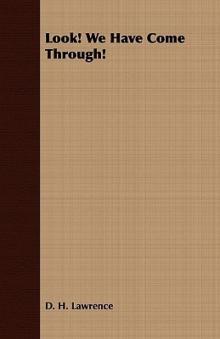 Look! We Have Come Through!
Look! We Have Come Through!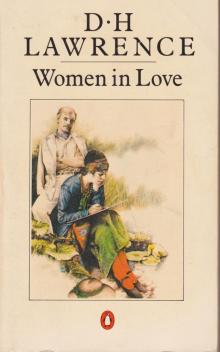 Women in Love
Women in Love The Ladybird
The Ladybird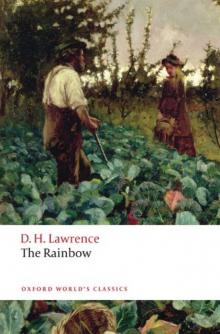 The Rainbow
The Rainbow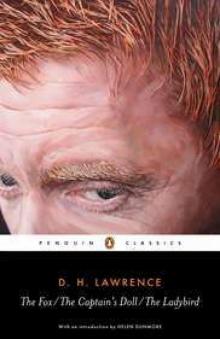 The Captain's Dol
The Captain's Dol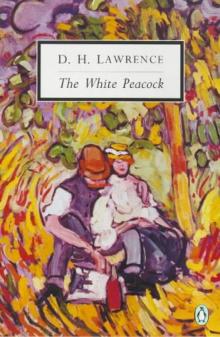 The White Peacock
The White Peacock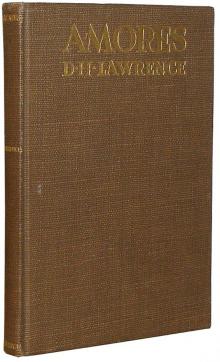 Amores
Amores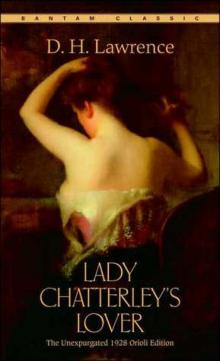 Lady Chatterley's Lover
Lady Chatterley's Lover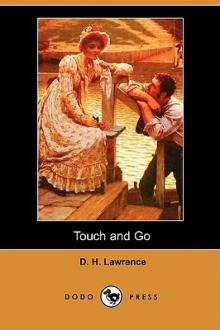 Touch and Go
Touch and Go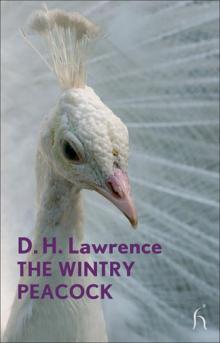 The Wintry Peacock
The Wintry Peacock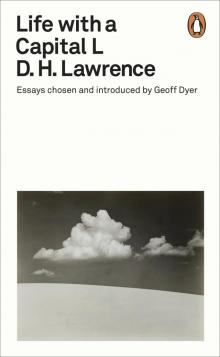 Life with a Capital L
Life with a Capital L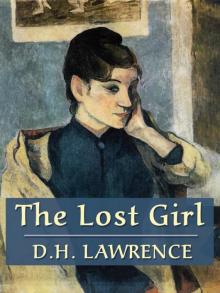 The Lost Girl
The Lost Girl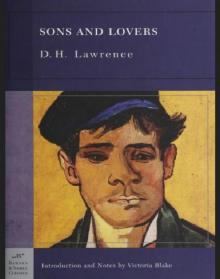 Sons and Lovers
Sons and Lovers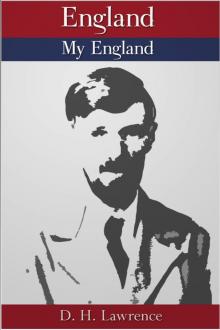 England, My England
England, My England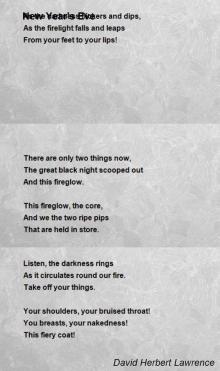 New Poems
New Poems Twilight in Italy
Twilight in Italy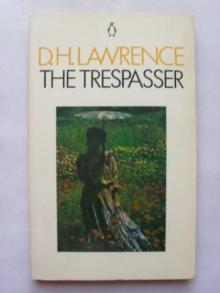 The Trespasser
The Trespasser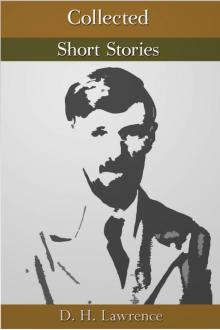 The Collected Short Stories
The Collected Short Stories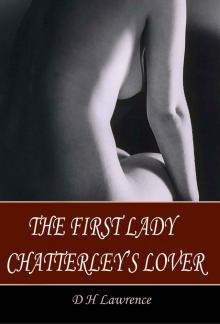 The First Lady Chatterley's Lover
The First Lady Chatterley's Lover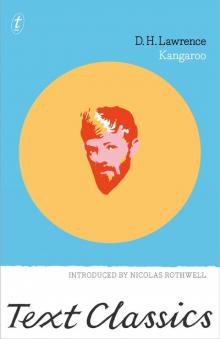 Kangaroo
Kangaroo Bay
Bay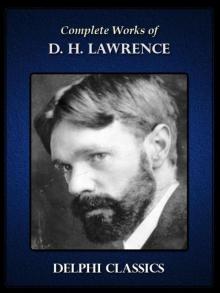 Complete Works of D.H. Lawrence
Complete Works of D.H. Lawrence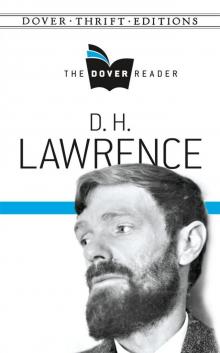 D H Lawrence- The Dover Reader
D H Lawrence- The Dover Reader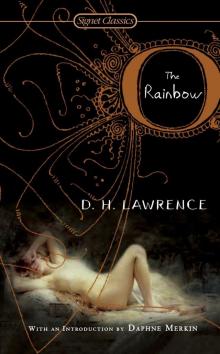 The Rainbow (100th Anniversary ed.)
The Rainbow (100th Anniversary ed.)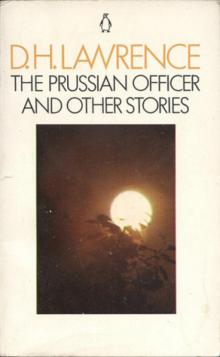 The Prussian Officer
The Prussian Officer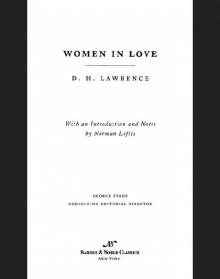 Women in Love (Barnes & Noble Classics Series)
Women in Love (Barnes & Noble Classics Series)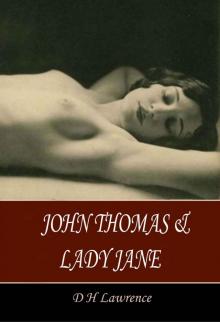 John Thomas and Lady Jane
John Thomas and Lady Jane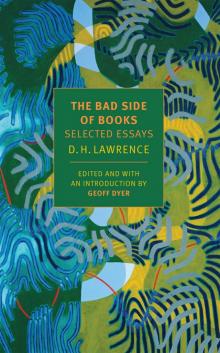 The Bad Side of Books
The Bad Side of Books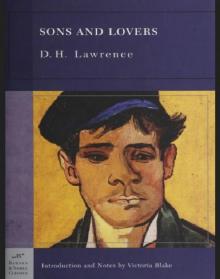 Sons and Lovers (Barnes & Noble Classics Series)
Sons and Lovers (Barnes & Noble Classics Series) Selected Stories
Selected Stories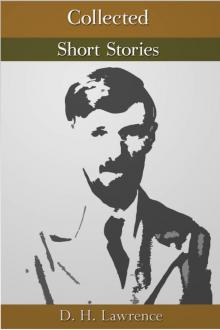 Collected Short Stories
Collected Short Stories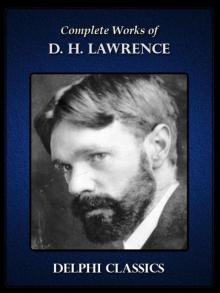 Complete Works of D.H. Lawrence (Illustrated)
Complete Works of D.H. Lawrence (Illustrated)